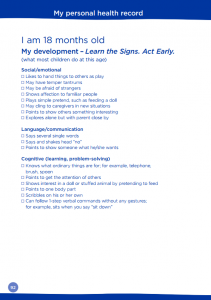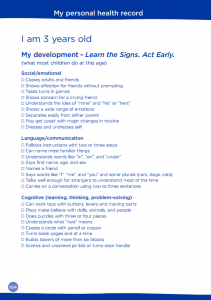There are many questions – and even myths – around what a Speech Pathologist does and when it is appropriate to see one. Here, we address some of them to hopefully help you make an informed choice about whether Speech Pathology is right for your child. If you have further questions, or would like to request an appointment, please contact us.
Frequently Asked Questions
- What is a Speech Pathologist?
- A Speech Pathologist is an allied health professional trained to assess, diagnose and treat communication delays and disorders. For more information, visit the Speech Pathology Australia website.
- Will my child just catch up to other kids as they get older?
- While some children who seem late to develop their communication skills do catch up to their peers without intervention, it is impossible to determine which children will do this naturally and which children will remain delayed. For children with speech, language, literacy or social skills difficulties, the older they get the bigger the gap between them and their peers becomes.
Difficulties with communication skills can affect children socially, emotionally and academically. For most children, the earlier their difficulties are identified and treated, the greater the outcome and the less time spent in therapy.
Therefore the best course of action is to discuss your concerns with a Speech Pathologist and complete an initial assessment. This can assist in identifying possible difficulties with your child’s communication skills and your Speech Pathologist can work with you and your child to improve those areas. - My child doesn’t seem to talk as much as other kids their age. Should I just use
flash cards to teach them new words? - Children learn language best through playing and interacting with the important people in their lives. A child’s primary caregiver is the most important language teacher in their life. Sometimes children need more direct language stimulation which can be given during everyday routines such as getting dressed, bath time, meal times, etc. The Hanen Centre provides excellent resources on this topic.
- How am I supposed to know what is typical for my child at their age?
- When your child is first born you are given a child personal health record book, a.k.a. the Blue Book. Among other useful things, the Blue Book contains information about things to look out for at different ages and when to contact your child and family health nurse or doctor. Below are some example pages from the Blue Book. Click them for the full size images.
Myths
- My child’s speech pathologist has a magic wand.
- As much as I would like this to be true it simply is not. In reality YOU as your child’s primary
caregiver are the one who will make the most difference to their progress in therapy. This
means being involved in sessions and practising at home. - My child is just a lazy talker.
- False. Children speak as well as they can. Although to you and me it may not seem like it,
producing speech is actually an extremely complex action. For children to learn new sounds, or
new ways of pronouncing sounds, they require LOTS of practise before this can become
automatic for them to produce in their everyday speech.



